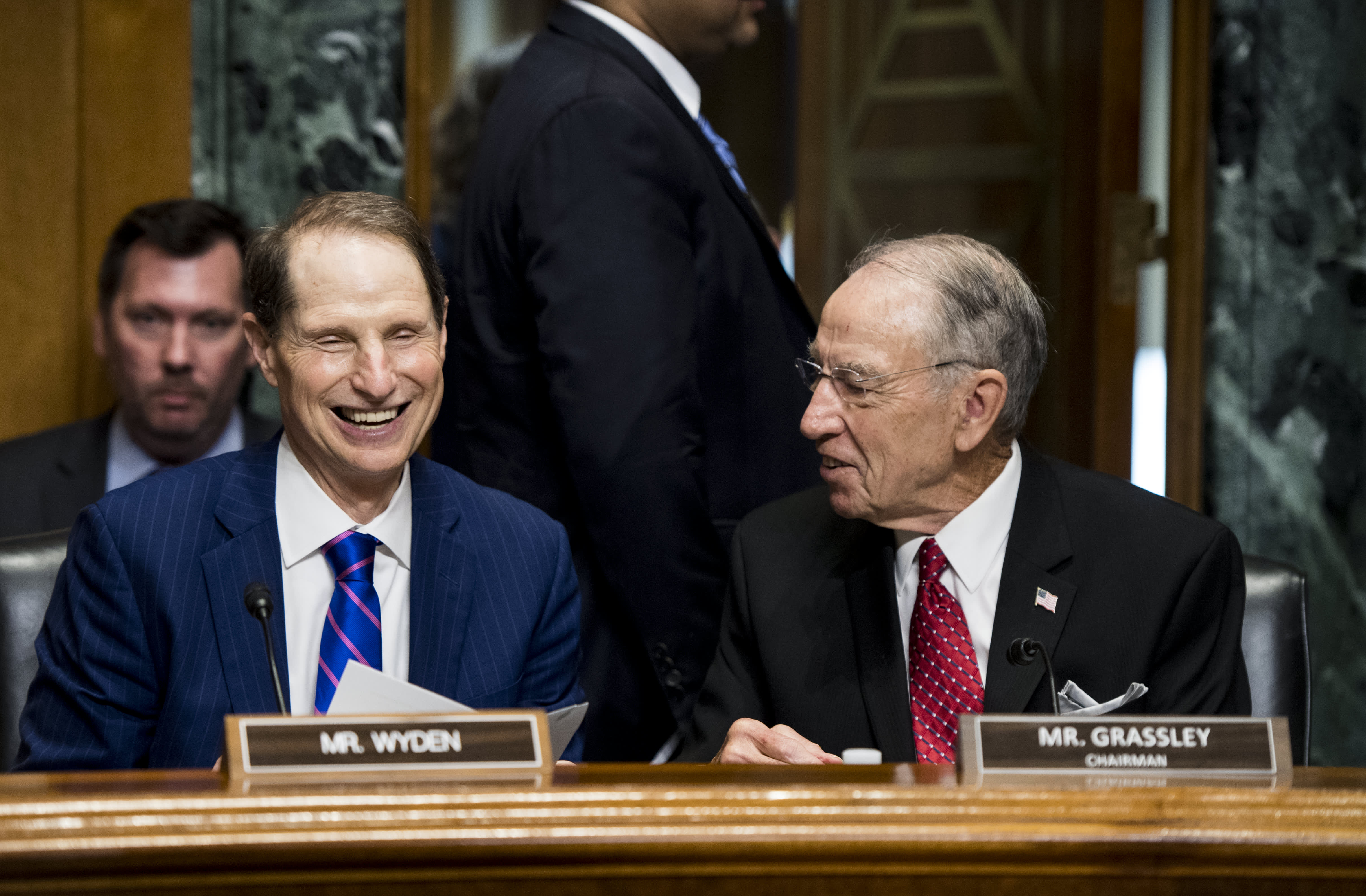Ranking member Sen. Ron Wyden, D-Ore., left, speaks with chairman Sen. Chuck Grassley, R-Iowa, during the Senate Finance Committee hearing on “The United States-Mexico-Canada Agreement” on Tuesday, July 30, 2019.
Bill Clark | CQ Roll Call | Getty Images
Companies that cover the cost of health insurance for their furloughed workers may miss out on a key tax credit.
The CARES Act established the employee retention tax credit to encourage employers to continue paying their workers as coronavirus disrupts the economy and shutters businesses.
This credit is equal to 50% of up to $10,000 in qualified wages paid to each employee — or a maximum of $5,000 per employee — after March 12, 2020 and before Jan. 1, 2021.
Here’s how it would work: A business pays an employee $1,500 per week and also spends $150 per week on health insurance for that individual. The amount of the credit would be $825 – that is, 50% of the $1,650 spent on salary and benefits for that employee.
More from Smart Tax Planning:
Businesses applied for the PPP loan. Forgiveness is uncertain
States need revenue. These taxes could rise
How are unemployment benefits taxed?
The employee retention tax credit does not apply in tandem with the Paycheck Protection Program — the forgivable loan program that’s available to small businesses. You can choose one or the other, but not both.
There’s a surprise snag in the employee retention tax credit: According to a new batch of “frequently asked questions” from the IRS, employers can’t use the credit if they lay off or furlough workers and cover their health insurance while not paying them wages.
The issue caught the attention of Sen. Finance Committee chairman Chuck Grassley, R-Iowa, ranking member Ron Wyden, D-Ore., and House Ways and Means Committee chairman Richard Neal, D-Mass.
The lawmakers wrote to Treasury Secretary Steven Mnuchin on Monday, asking the department to change course and allow these companies to claim the credit.
Treasury and the IRS treatment of the credit runs counter to the intent of Congress, the lawmakers wrote.
“The economic contraction caused by the pandemic has resulted in over 30 million unemployment claims, making incentives that retain the connection to employment and employee benefits critical,” according to the letter. “After the passage of the CARES Act, we reiterated this intent in subsequent communications with Treasury.”
“We are, therefore, disappointed with the recent determination that an employer that is no longer paying regular wages but continues to provide full health benefits would not be able to treat any portion of those health benefits as qualifying wages eligible for the retention credit,” the joint letter stated.
